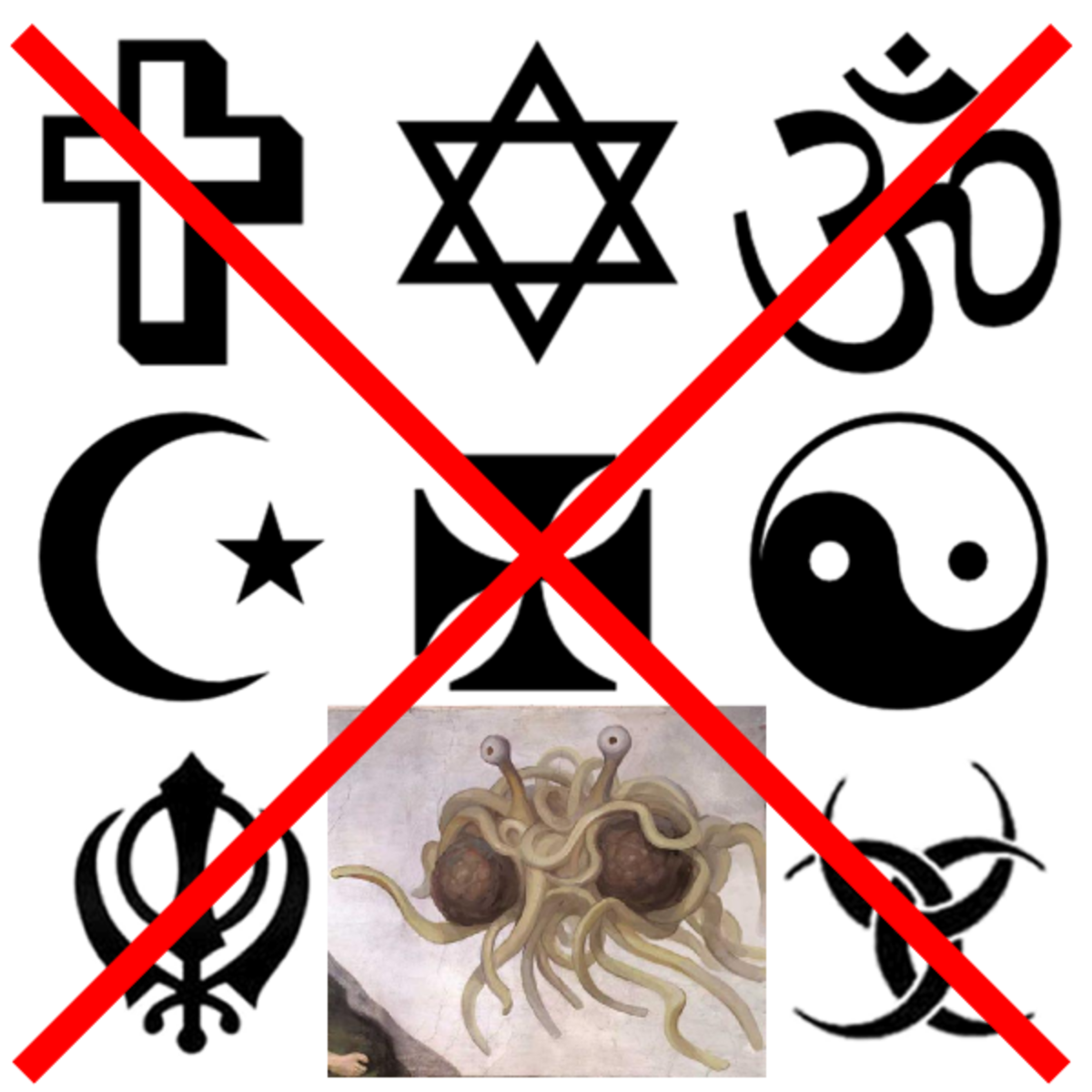Death and Immortality

Why Do We Have to Die?
This essay deals with questions like eternal life, the purpose of death, and the myth of an immortal soul. It is my attempt to repel the common arguments against human immortality, and to share my thoughts on the subject.
Ever since life began on Earth, death has been an inevitable part of it. "Everything that lives must one day die" is a statement most people will probably agree with. Death is a necessary part of the ecosystem: certain organisms die, so others can live. However, is it still true for humans? We are changing our environment instead of adapting to it. Our technological development is much faster than natural selection. Most importantly, we have a wonderful gift of intelligence which allows us to question and study everything - even the existence of death.
What is the point of death, really? The older generations die off, so new organisms - some of which are better adapted to the ever-changing environment, and in turn, will have more offspring themselves - can live. Without death, evolution is impossible. However, evolution is no longer necessary for us humans. First of all, it is a very slow process that takes many generations for any noticeable changes to occur. Second, humans no longer have to adapt to the environment, since they managed to create a suitable and comfortable living habitat for themselves. Finally, preserving the world's greatest minds would benefit us much more as a species (just imagine what Einstein could discover, having access to all the knowledge we have today)! As such, it shouldn't be necessary for humans to die anymore, since dying does not serve any function. In fact, I'd say that death is a pointless and terrible thing, the biggest tragedy in the world, and the sooner we can fix it, the better.
Of course, the role of death in evolution isn't the only issue. Common sense tells us that if people suddenly stopped dying of old age, we'd soon be facing overpopulation, starvation and war. There are many other popular arguments against eternal life, some of which I've addressed below.
Any religious people visiting this page will probably bring up concepts like reincarnation or an immortal soul, which were, in my opinion, invented to ward off the fear of death. While I can certainly see the comfort of believing that your existence will continue after you die, there is no real evidence of an afterlife. I prefer to face the harsh truth rather than believe in an illusion, no matter how attractive it is. If we die, we cease existing - that's why it's in humanity's best interest to stop that from happening. As for the whole immortal soul thing, I've written down some of my thoughts about that as well.
What is Immortality and Can We Actually Achieve It?
Biological immortality means the defeat of aging
There are many definitions of immortality, but this particular article deals with the concept of biological immortality. Simply put, an immortal organism does not age and is able to live indefinitely, barring a fatal injury or disease. I think that is exactly what we as a species should aim for. I'm not talking about merely extending the lifespan somewhat so that we could stay old longer - I'm talking eternal youth, keeping the sharpness of your mind and a healthy body for as long as you please.
Can humans become immortal? There's no reason to believe that beating aging and achieving indefinite lifespans is impossible. This could be accomplished through stem cell therapy, genetic engineering (possibly also giving us higher IQs, healthier and stronger bodies, and other improvements), nanotech, mind uploading (transferring human mind to a machine), and various other means. All of this is clearly beyond our current power and knowledge, but if the progress continues at the same staggering pace - perhaps even reaching the fabled technological singularity - we just might get there in the next hundred years or so.
Current scientific research has already brought us some important knowledge regarding aging. We now know that human cells stop dividing due to the Hayflick limit and shortened telomeres, and that the lifespan of mice can be drastically improved by putting them on calorie-restricted diet (and that similar results might be achieved using resveratrol supplements). We're still years away from real life-extension technology, which would probably involve complex therapy for repairing cellular damage and stopping the aging processes encoded in our genes.
Will we be replaced? It seems logical that creating new, better humans through genetic engineering will be a much easier task than modifying the genome of existing ones. Of course, I'm not talking about a genocide - the mortal humans would simply die off naturally, while more and more of the "improved" humans with unlimited lifespans enter the world.
Will we still be human? I personally believe that an immortal person would still be very much a human with the same feelings, needs, and weaknesses as we have now (although their values and outlook on life might change). By taking evolution into our own hands, however, one day we might be able to become much more than that. There's a philosophy called transhumanism which advocates applying reason, science and technology to improve well-being and overcome biological limitations of human body. I encourage you to visit the linked Wikipedia page, as people much more smarter than me have answered questions regarding the ethics of transforming ourselves, and the potential "loss of humanity".
Transhumanism shares many elements of humanism, including a respect for reason and science, a commitment to progress, and a valuing of human (or transhuman) existence in this life rather than in some supernatural "afterlife". Transhumanism differs from humanism in recognizing and anticipating the radical alterations in the nature and possibilities of our lives resulting from various sciences and technologies such as neuroscience and neuropharmacology, life extension, nanotechnology, artificial ultraintelligence, and space habitation, combined with a rational philosophy and value system.
Dr. Max More on Transhumanism: A Futurist Philosophy
Common Arguments Against Immortality
There's no reason why we shouldn't aim to live forever
Suggestions that humans should strive for immortality are often met with hostility and disbelief. Naysayers usually claim that living forever would be "unnatural", or that it would get boring. This is my layman's attempt at debunking some of those arguments.
"Eternal life would get boring"
This is probably the most common, and possibly the most ridiculous argument against immortality. What kind of person would get so bored of life that they'd want to die? Certainly one with poor imagination! Of course, I understand that life isn't very enjoyable at old age - but that's exactly the problem immortality would fix. It wouldn't just extend the time you spend being old and frail - quite the contrary, it would allow you to enjoy being young and healthy forever.
People get bored when they run out of interesting things to do. However, that simply isn't possible in the modern world, even with an eternal life ahead of you. Let's say you decide to dedicate 20 years to learn everything possible about astrophysics, and perhaps contribute to its progress. By the time you're done learning, other scientific fields will have made staggering advances. One person simply cannot keep up with the progress in all science.
What about books? Even if you spend all your time reading, new books are coming out at a faster rate than you can read them, so you'll never be able to read all the publications in the world. Or if that does not interest you, what about travel? By the time you visit every location in the world, some of them will have changed unrecognizably; they will be full of new things and new people to meet.
Most importantly, wouldn't you want to see the future: the moment the first man sets foot on Mars, the first piloted spaceship reaching Jupiter, the voyage to another star, the meeting with an intelligent alien life form, and many other things, including ones we can't possibly imagine now?
Having said all that, I do acknowledge that people can be very different, and just because I think I wouldn't get bored with a very, very long life, doesn't mean everyone else wouldn't, either (or that I wouldn't change my mind after a few hundred years). I imagine that immortality in the form of a life-extending treatment would likely be a choice, not something forced on everyone - so if a person wishes to die after living out their "natural" lifespan of ~80 years, they would be free to do so.
Truth be told, I believe that some people only use this argument because they are trying to convince themselves they're OK with the idea of dying, perhaps without realizing it themselves. If an actual way of becoming immortal was made available, they would jump at the opportunity like everyone else. Indeed, many religious people accept death precisely because they firmly believe that it's not the end of their existence, and that they will be resurrected in afterlife.
"Death is the natural order of things"
As I mentioned in the first part of my essay, death is the driving force of evolution. In this regard, it is indeed a natural part of life on Earth. Humans, however, have been breaking the rules for thousands of years now. Modifying the environment instead of adapting to it isn't "natural". Neither are antibiotics, vaccines, surgery, and optical glasses. Millions of people wouldn't be alive today if it weren't for these "unnatural" advances in medical science. Why are we OK with saving people from deadly diseases, but accept death from old age as a perfectly natural thing?
Yes, humans break the rules - but that's the only way to go if we want to rise and reach out beyond Earth! Besides, we don't have any information for comparison - perhaps it is perfectly "natural" for an intelligent race to seek immortality and improve their own bodies, and the same thing is happening in other planets many light years away.
Furthermore, there already are certain organisms on Earth which are extremely long-lived or even biologically immortal, such as the Turritopsis dohrnii jellyfish. If it's "natural" for this creature to live forever (barring predation and disease), why couldn't the same be said for us?
"It would be a burden on society"
Some people claim that as the average life expectancy increases, it costs more and more for working members of society to support the retired portion of the population. It is indeed a big problem in some developed countries, but this argument stems from a simple misunderstanding: life extension wouldn't simply let us stay old for a longer time, it would give us eternal youth, allowing people to contribute to society for a much longer time.
Think about it this way: in your average developed country, a person usually spends his or her first 20 years learning, then they work for 40 years or so, and spend the following 20 years in retirement. If aging was eliminated, people would stay productive forever, perhaps taking a few years off after a decade of work, or brushing up on their education and exploring other opportunities, without having to rely on the social security system of their country.
"It would cause a social divide"
This is probably the most real problem out of those mentioned that would occur if we achieved artificial immortality. It's obvious that we couldn't just turn the whole population of the Earth immortal at once. First of all, we probably wouldn't have enough resources to administer the anti-aging treatment to everyone. Second, some people will refuse to undergo such therapy due to their personal beliefs. Finally, we don't want to completely eliminate human death from old age before ensuring that Earth can support the current population, and introducing strict birth control.
At first, we'll probably end up in a situation where immortality is only available to the rich, and perhaps to important people whose minds we would want to save for the good of all humanity (great scientists, artists and such). This will undoubtedly cause social tension. Some people will want to become live forever themselves; others will be so affronted by the idea of immortal humans that they will turn to terrorism.
I don't think there's an easy way out of it: humanity would just have to weather this crisis like it did many others before. Eliminating old age as cause of death and understanding that we don't have to die would be a real paradigm shift, a more dramatic one than learning that the Earth isn't flat, and that it revolves around the Sun.
"It would result in overpopulation"
Our planet has finite amount of arable land and other resources, so it can only support a limited population. This is a serious enough problem even without bringing immortality to the equation. Eliminating aging, however, is unlikely to create a huge population boom very quickly, unless we somehow managed to modify the DNA of every living human at the same time. It is far more likely to be a slow process, available to select few at first. Furthermore, we won't be able to make humans completely immortal anytime soon. It will most likely be an ongoing process, extending the average lifespan by a few more years decade after decade as more advanced therapies become available. By the time aging is defeated completely, we will probably be living for several hundreds years already.
The overpopulation issue can be solved by creating laws which would either completely forbid the immortal humans to have children, or make them pay exorbitant fines if they do (similarly to the one-child policy in China). While some people can't imagine not having offspring, others will be perfectly happy with being able to live forever at the cost of not breeding. In other words, lowering the death rate simply means that we have to lower the birth rate as well.
Infinite lifespan might also prove instrumental for space exploration. Many great minds, Stephen Hawking included, claim that if if we want to survive as a race, we have to venture beyond our planet. The Universe is, for all intents and purposes, infinite, so we'd never run out of resources or living space. There's just one problem, however: unless some revolutionary discoveries are made, we can't travel faster than light. That means interstellar travel is going to take hundreds, even thousands of years - a challenge, sure, but no longer an impossibility for an immortal being!

Existence of Soul and Life After Death
Would you rather believe a sweet lie or the bitter truth?
Another common argument against trying to cure aging comes from various religious groups. They claim that our existence on Earth is supposed to be temporary, and that after we die, our "souls" simply move on to an afterlife of some sort (or reincarnate, or ascend to a "higher plane of existence", etc).
The first thing I'd ask a believer to do is to define what a soul is. A lot of Christians, for example, seem to believe that their souls will go to Heaven after they die, where they will meet their dead relatives and friends. That means the so-called immortal soul is supposed to see (or sense the things around them in some other way), think, feel, and retain the memories from their time on Earth. These things, however, contradict the current scientific knowledge and logic:
- The human senses are purely physiological: you can't see without your eyes, hear without your ears, and so on. A soul without a body wouldn't be able to sense anything at all, unless it uses some unknown, supernatural form of perception.
- Emotions are related to the release of certain chemicals in the human body, as well as the activation of certain parts of the brain. Certain drugs (e.g. antidepressants) are known to affect emotions. Since your body shuts down and starts decomposing when you die, this supernatural soul would not be able to "feel" as we humans do.
- Memory: scientists still haven't figured out how exactly it works, but almost everyone agrees that our memories are stored in the brain. Indeed, brain damage can result in a memory loss, as well as cognitive impairment. When your brain dies, your memory is gone forever.
- Your intellect, your very mind, and everything that makes you the person you are, is stored in the unique configuration, the "connectome" of your brain. Your thoughts are the result of millions of neurons processing and transmitting information. They can now even be seen in real time by using fMRI scanning! Without the brain, a soul can't think or be self-aware.
What is the soul, then?
If it is independent from the brain, how do you explain the fact that brain damage affects memories, personality, and mind? Seeing how most people experience a decline in cognitive function as they age, do you suddenly regain same power of intellect as when you were young when you reach afterlife? If it does exist, when does it enter human body, and why haven't we been able to measure it using any method?
The (harsh) reality
I admit, the idea of an afterlife is not an unattractive one. However, to quote an excellent article from the Skeptic Magazine, we cannot base our beliefs on what we want to be true; the truth can only be found by weighing the evidence for a given idea (source). In this case, there is very strong evidence that life ends with death, and only anecdotal evidence and personal faith to support the idea of an afterlife. There is no serious research on life after death, because there's simply nothing to research.
If there is no soul, are we no different from animals?
Unlike animals, humans are self-aware (note: there is evidence that certain animals, like some apes, may also be self-aware) and possess advanced intelligence. What most people call a soul - our mind, memories, and personality - is in fact located in the brain. it can be damaged, and it disappears with our death. That's why I believe it's imperative to find a way to preserve it in one way or another. After all, it is the biggest treasure in the world!
Contrary to the fantasies of the fundamentalists, there was no deathbed conversion, no last minute refuge taken in a comforting vision of a heaven or an afterlife. For Carl, what mattered most was what was true, not merely what would make us feel better. Even at this moment when anyone would be forgiven for turning away from the reality of our situation, Carl was unflinching. As we looked deeply into each other's eyes, it was with a shared conviction that our wondrous life together was ending forever.
Ann Druyan about the death of Carl Sagan in the epilogue to
Billions and Billions: Thoughts on Life and Death at the Brink of the Millennium.
Why Strive for Immortality?
Here are just a few reasons as to why it would be great to live forever:
- There's nothing waiting for you after death - you simply cease to exist. The sum of your intelligence, personality, and self-awareness - the thing some people call "soul" - is amazing, and we should do our best to prevent the tragedy of losing it forever.
- See the future: our understanding of the world around us and the ability to manipulate it keeps improving at a breakneck pace. Who knows where the next hundred years will take us? If you ever want to experience virtual reality, walk on another planet, visit another star system, this is your only chance.
- Transcend your limits: keep improving yourself and learning more about the universe we live in forever, unconstrained by biological limitations like limited lifespan.
- Fulfill your dreams: what would you do if you could live forever? Perhaps do those little things you never seem to find the time for, or leave your "secure" job for one of your dreams? And if that doesn't work out, it's OK - you have all the time you need, and can afford to plan for decades and even hundreds of years in the future.
- Have a choice: although it's hard for me to comprehend, some individuals might tire of existence. If we achieved biological immortality, people could choose how long they want to live for, rather than inevitably dying of old age at 80 or so.
Great TED Talk about Curing Aging
Renowned British gerontologist Aubrey de Grey on why we age and how we can avert it.
The Biological Immortality Debate
Share your thoughts about a life without aging. Is it possible, or is it just a fantasy, and we all have to die eventually?
Links and Resources for Further Reading
Find out more about immortality research, transhumanism, technological singularity, and other related topics
- LongEcity is an international non-profit organization whose mission is to conquer the blight of involuntary death. They host a popular forum where members can discuss the latest advances in science, lifestyle improvements, supplements, nanotechnology, cryonics, and more.
- Dr. Max More is a futurist who has written many inspiring and informative articles dealing with the challenges created by rapid technological progress. If you're not sure where to start, I highly recommend reading his articles on transhumanism.
- Singularity Institute is a nonprofit organization whose mission is to ensure that the creation of smarter-than-human intelligence benefits society. One of their creations is LessWrong.com, an online community dedicated to human rationality.
- Cryonics Institute offers you the option of having your body cryogenically preserved in liquid nitrogen, with hopes that future medical technology will be able to resurrect and return you to good health. it is an interesting concept, but the current vitrification process (not to mention death itself) still damages your tissues, and we can't know for sure whether it will ever be possible to revive cryopreserved humans.
- Humanity+ is an international nonprofit membership organization dedicated to life extension, human evolution, and elevating the human condition. They have their own magazine, e-mail newsletter, and local chapters in many different countries.








